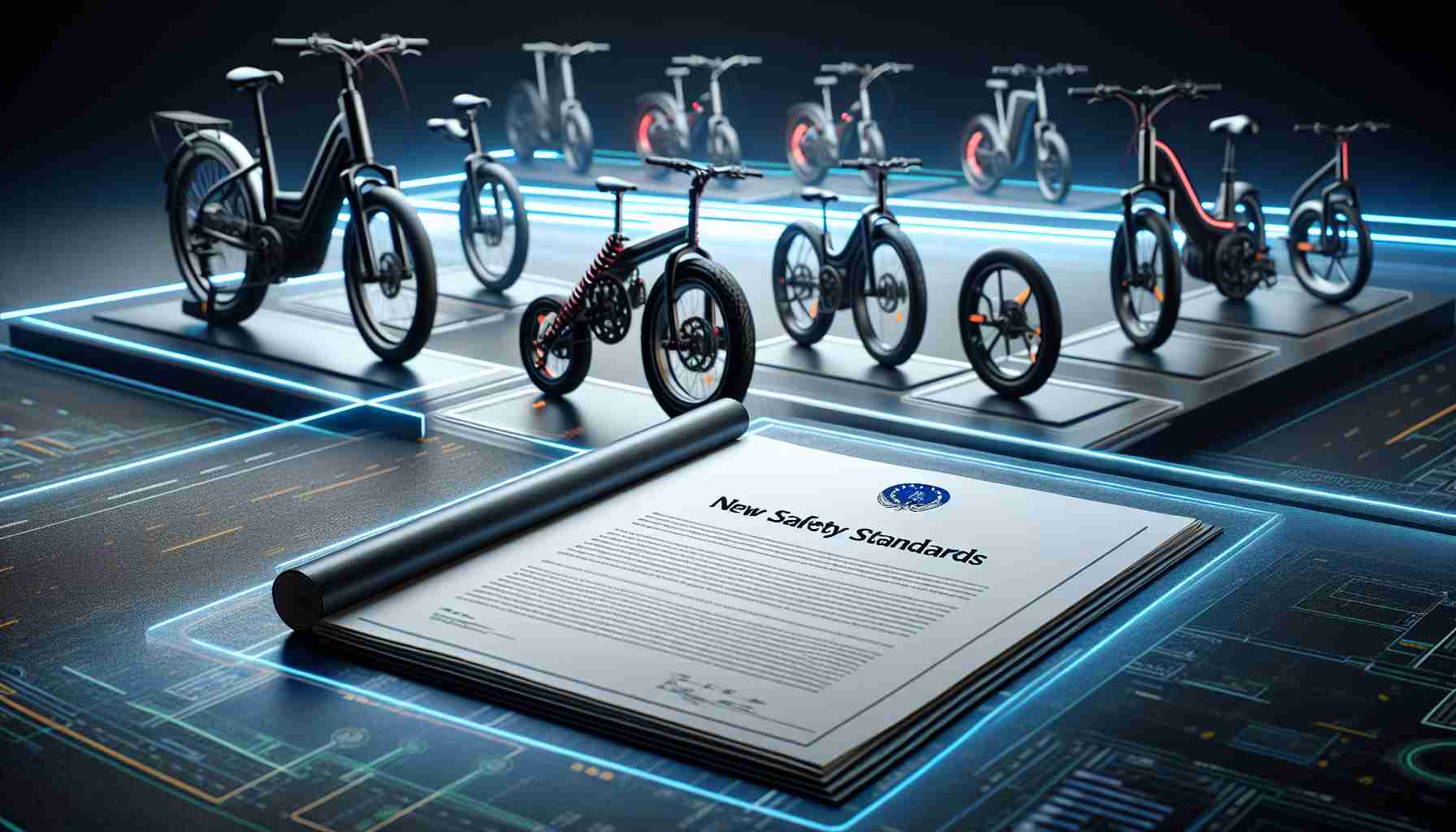Chinese regulators have unveiled a set of comprehensive safety standards aimed at the burgeoning electric bicycle market. The proposed measures suggest limiting the maximum speed of e-bikes to 25 kilometers per hour, a move intended to bolster safety amid the rapid expansion of this popular transportation mode.
Both the Ministry of Industry and Information Technology and various other governmental bodies spearheaded this initiative, marking a significant step in the nation’s goal of standardizing e-bike manufacturing and usage. Open to public consultation, these standards are designed to enhance various safety features while ensuring compliance with modern technological advancements.
A pivotal aspect of these standards is the emphasis on flame retardancy, mandating stricter fire safety protocols for nonmetallic materials and reducing the use of plastic in e-bike designs. Furthermore, the introduction of essential features such as real-time communication systems and advanced satellite positioning capabilities is seen as a proactive approach to monitoring and improving e-bike safety.
Additionally, the guidelines aim to thwart unauthorized alterations by ensuring key components like batteries and controllers are compatible across different models, complicating unauthorized modifications.
With over 350 million e-bikes in circulation, the new regulations aim to elevate manufacturing processes and safety protocols, fostering a more secure cycling environment for users across the country. This initiative positions China not just as a leader in e-bike usage but also as a pioneer in establishing robust safety standards for the industry.
The electric bicycle (e-bike) market is a rapidly growing industry, particularly in China, where it has seen explosive growth over the past decade. E-bikes have become a critical mode of transportation in urban areas, providing an eco-friendly and efficient alternative to traditional vehicles. The global e-bike market is projected to continue its upward trajectory, with forecasts suggesting it could reach a value of over $24 billion by 2026, growing at a compound annual growth rate (CAGR) of around 8.5% from 2021 to 2026. This growth is underpinned by increasing urban congestion, rising fuel costs, and growing environmental concerns among consumers, driving demand for cleaner transportation options.
Challenges in the E-Bike Industry
While this expansion offers numerous opportunities, the e-bike industry also faces several challenges. One major issue is the inconsistency in regulations across different regions, which can lead to confusion among manufacturers and consumers alike. The introduction of comprehensive safety standards in China is a crucial step towards harmonizing these regulations, but similar efforts need to be observed globally to ensure that safety protocols are upheld everywhere e-bikes are used.
Another challenge involves the sustainability of the materials used in e-bike manufacturing. As the demand for e-bikes increases, so does the need for responsibly sourced materials that do not negatively impact the environment. The new regulations emphasize the reduction of plastic usage, echoing a broader trend towards sustainability in manufacturing practices across various industries.
Market Dynamics and Innovations
The e-bike market is also characterized by rapid technological advancements. Innovations in battery technology, such as the development of lighter, longer-lasting batteries, are crucial for enhancing the performance and convenience of e-bikes. Furthermore, with increasing digitalization, features like smart connectivity, app integration, and advanced GPS tracking are becoming standard. These technologies not only improve the user experience but also enhance safety features significantly.
Additionally, electric bicycles are increasingly being integrated into urban mobility plans, with many cities promoting their use as part of broader strategies to reduce traffic congestion and carbon emissions. Public-private partnerships are emerging, facilitating the development of e-bike sharing programs and infrastructure, such as dedicated bike lanes and charging stations.
Outlook for the Future
The future of the e-bike industry is promising, especially as governments and industries worldwide prioritize sustainable transport solutions. In China, with the introduction of stringent safety regulations, the country is set to lead by example, encouraging other nations to pursue similar measures. Investors and companies within the e-bike sector are well-positioned to capitalize on these trends as consumer preferences shift towards greener alternatives for commuting.
In summary, the electric bicycle market is on an exciting growth trajectory, fostering innovation while addressing critical safety and sustainability issues. The recent regulatory developments in China will likely serve as a model for other countries as they navigate the evolving landscape of urban mobility.
For more information on the industry and trends, you can visit Electric Bike or Pedelecs.







